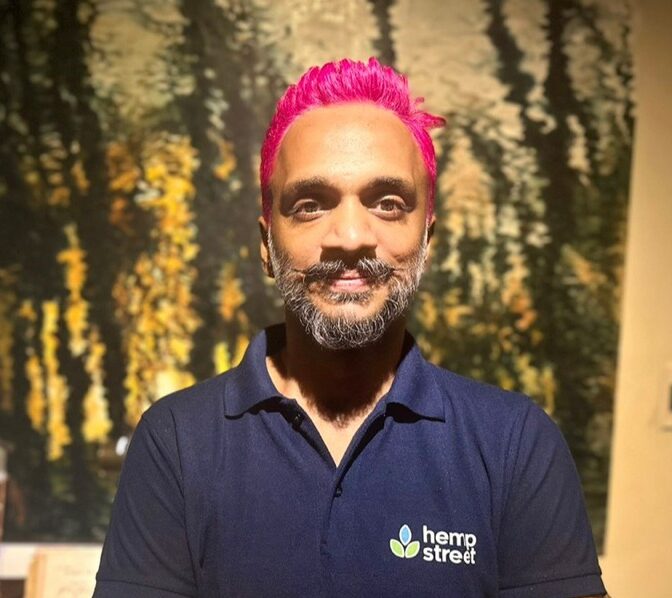Entrepreneurs
Nurturing Growth: Abhishek Mohan’s Visionary Role in Revolutionizing Cannabis-Based Medicine in India

In the heart of Delhi, a transformative journey is unfolding as Abhishek Mohan, along with co-founders Aradhna Rai and Shrey Jain, leads HempStreet, a start-up making waves in the cannabis-based medicine sector. Founded in 2019, HempStreet garnered attention by securing $1 million in pre-Series A funding from international investors in a bold move that reflects the growing acceptance of cannabis’s medicinal potential.
At the core of HempStreet’s mission is a commitment to address chronic pain, a widespread ailment affecting a significant portion of the Indian population. Recognizing that less than 8 percent of those affected receive adequate relief or care, Abhishek Mohan saw cannabis-based medication as a viable solution. However, navigating India’s complex regulatory landscape presented a significant challenge, requiring meticulous understanding and adherence. “We wanted to address this mass ailment that has been affecting a large part of our population, for which less than 8 percent received any relief or care. We saw that cannabis-based medication as a solution to this,” explains Mohan, highlighting the start-up’s dedication to tackling a pressing health issue.
HempStreet’s flagship product, Trailokya Vijaya Vati, is specifically designed to alleviate menstrual cramps. The startup has rapidly expanded its reach, boasting a network of 850 clinics across 22 states in less than four months between November 2020 and March. This remarkable growth underscores the demand for alternative, cannabis-based therapies in India. In India, the legal framework surrounding cannabis is intricate and poses challenges for startups like HempStreet. The Narcotic Drugs and Psychotropic Substances Act (NDPS Act) of 1985 prohibits any mixture, with or without neutral material, of the two forms of cannabis—charas and ganja, as well as any drink prepared from it. The act strictly regulates the use of cannabis, making it a complex task for startups to navigate the legal landscape.
Currently, hemp cultivation in India is only allowed if the chemical composition of THC (tetrahydrocannabinol) is below 0.3 percent. The Act permits the use of seeds, leaves, and stalks for industrial or medical purposes, while fruiting tops remain banned. This stringent policy, influenced by global standards, has led to the importation of seeds despite India’s potential to contribute significantly to the global hemp market. In a significant development, the United Nations Commission on Narcotic Drugs (CND) voted to remove cannabis and cannabis resin from Schedule IV of the 1961 Single Convention on Narcotic Drugs. This decision, signaling a shift in the global stance on medicinal marijuana, has sparked hopes for change in India’s cannabis policies.
The move, backed by India, holds the promise of opening up policies around cannabis, easing current regulations, and acknowledging the medicinal and commercial potential of the plant. In 2016, Uttarakhand became the first Indian state to permit large-scale commercial cultivation of industrial hemp, a step toward recognizing the plant’s potential beyond restrictions. Abhishek Mohan, acknowledging the challenges within the industry, emphasizes the importance of maintaining quality standards. Many startups, he notes, fall short in delivering quality products, hindering customer retention. High prices further limit accessibility, turning products into luxury items rather than everyday consumer goods.
Rohit Sharma, founder of the Indian Industrial Hemp Association (IIHA), collaborates with startups to address these challenges. Sharma emphasizes the significance of providing quality products to enhance customer satisfaction and advocates for reasonable pricing to ensure widespread accessibility. As India’s cannabis industry takes tentative steps toward growth, Abhishek Mohan’s HempStreet stands as a beacon, not only addressing chronic pain but also contributing to the larger narrative of reshaping perceptions and policies surrounding cannabis-based medicine in the country. In a landscape where challenges persist, Mohan’s vision and the industry’s collective efforts are paving the way for a healthier, more accepting future.
